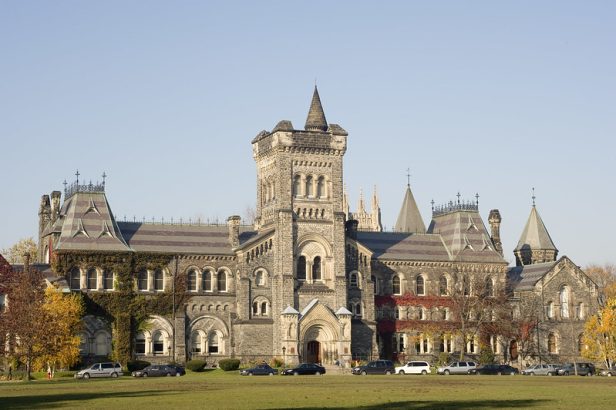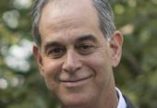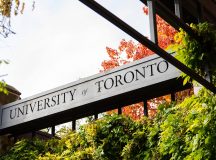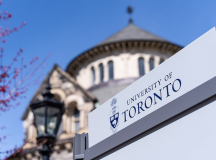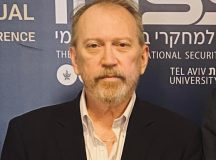Stuart Kamenetsky is Professor of Psychology at the University of Toronto Mississauga. His opinion piece ‘The University of Toronto’s Antisemitism Problem’ appeared in Fathom in 2022.
The savage murder of over 1400 innocent Israelis by Hamas terrorists and the resulting Israeli military response to eliminate Hamas in Gaza resulted in inconceivable pain and suffering for the affected families as well as unprecedented collective trauma both in Israel and on the Gaza Strip. Powerful shockwaves reverberated around the world resulting in mass demonstrations in support of Israel as well as the Palestinians and, tragically, in support of Hamas too. Demands for moral clarity were fierce and strong, arguing that one doesn’t have to be pro-Israel or anti-Palestine to recognise that burning children, raping women, kidnapping elderly Holocaust survivors, filming such atrocities and sharing them with their family members is pure evil.
As expected, Arab leaders for the most part failed to denounce such atrocities. Western leaders, most notably US President Joe Biden, have. But what about universities? One would expect that North America’s prestigious institutions of higher education, which are responsible for what the next generation of leaders will think – would do the same. Presidents of Harvard, Columbia and the University of Pennsylvania, however, came under attack for not providing such moral clarity. Instead, they provided typical statements concerning the tragic loss of life on both sides and their commitment to free speech.
At Canada’s leading university, the University of Toronto, President Gertler provided some moral clarity on October 18 – 11 days after the atrocities had been committed, and only after much public pressure. He opened his public statement saying that ‘More than a week has passed since the tragic events of October 7 – beginning with the unspeakable atrocities committed by Hamas against Israeli civilians, actions that shocked and horrified many around the world.’ The rest of his statement provided the usual rhetoric we have become accustomed to. Like its American counterparts, this included a statement supporting free speech: ‘We should be especially mindful of the diversity of views, experiences and perspectives within our own local communities – academic units and campuses, student government bodies and more.’ The University of Toronto’s Faculty Association (UTFA) whose president, Teresa Zoric, referred to certain Jewish faculty as an ‘entitled powerful Zionist minority’ engaged in ‘psychological warfare’ with respect to a hiring controversy, unsurprisingly failed to issue a statement providing any moral clarity and rather said: ‘We mourn the loss of life in Israel/Palestine over the past two weeks and over many decades, and we strongly condemn all attacks on civilians in contravention of international law’, thus whitewashing the atrocities committed by Hamas. UTFA did, however, provide full support for unrestricted academic freedom as follows:
The University of Toronto Faculty Association (UTFA) is unwavering in its support for all faculty, librarians, students, other members of our scholarly communities who speak up about the current war in Palestine/Israel, and all who offer their scholarly expertise. It is not only a right, but also a duty for scholars to bring their expertise and varied perspectives to the most contested conversations, including about human rights, terrorism, colonialism, genocide, and international law.
So… despite only an average mark for moral clarity about Hamas’ brutal massacre of Israelis (a ‘B’ for the President and an ‘F’ for UTFA) the university seemingly deserves an ‘A’ for their commitment to protecting free speech. After all, this is ingrained in the Memorandum of Agreement between the University and its Faculty which states:
(both parties) agree to abide by the principles of academic freedom as expressed in the following statement: academic freedom is the freedom to examine, question, teach, and learn, and it involves the right to investigate, speculate, and comment without reference to prescribed doctrine, as well as the right to criticise the University of Toronto and society at large.
This, of course, is what is broadly expected throughout the academic world. However, this statement has been used to defend antisemitic rhetoric disguised as anti-Israel opinions over many years. The University of Toronto is the birthplace of ‘Israel Apartheid Week’ and a major hub of the BDS movement, both of which produce on-campus events that include calls to ‘kill the Jews and rape their women’ as well as for the destruction of the Jewish State. It has more recently been used to reject the International Holocaust Remembrance Alliance working definition of antisemitism, which has been accepted by 43 countries including Canada and the US, many provincial governments, US States, as well as UK colleges and universities.
One would thus assume that given the University of Toronto’s zealous commitment to academic freedom, it would protect it throughout its entire organisation and for all its members. Not only would it allow an uninformed 18-year-old student to provide an opinion based on fake news obtained by social media, but it would also protect the speech of its senior Full Professors, who have studied and published throughout their entire careers. But this is not the case, and certainly not If you are Jewish.
Case in point: I shared on my private Linkedin account a Charlie Hebdo caricature of a Hamas terrorist (typical green headband for clear identification with Islamic extremism) attempting to wash his bloody hands. Caption on top says that ‘Israel has shut off water supply to Gaza’. The Hamas terrorist says ‘such barbarians’ for shutting off the water.
This caricature may be seen as a distasteful and provocative response to a horrendous crime. Others may interpret it differently. I felt that it clearly expressed the hypocrisy of a bully claiming victimhood. Clearly, this is one of those ‘most contested conversations’ according to President Gertler, that the university is committed to defending and encouraging. Where else would these debates happen if not at universities?
With 500+ followers it was just a matter of time until a student who opposed my post would disagree. But rather than saying so in a comment and explaining why, a social media campaign against me was launched. This included a Reddit page titled ‘why has professor stuart kamentsky not faced any repercussions for what he shared on his social media?’, as well as a petition against me with over 1600 signatures: ‘Demand University of Toronto to Investigate Professor Stuart Brian Kamenestky’s Discriminatory Remarks’. And then, of course, there were the threatening emails, phone messages, and social media messages.
I let campus police and all senior administrators both on my campus (Mississauga) and the central administration know what was taking place and that I felt unsafe to come to campus. I have yet to hear back from anyone from the university administration with words of comfort, support, or a clear indication as to how they plan to protect my academic freedom. Campus police called me a day later assuring me that when I come to campus next, they will provide me with a police escort, a panic button, and advise me where to park my car, so that if and when it gets vandalised there will be video footage of it. I can only imagine that if I go through the Environmental Health & Safety office on campus claiming that I have mental health challenges due to this situation – that they would be more than happy to excuse me from teaching the next term. Under pressure from family and friends who care about my physical safety and who questioned why I would ever expect that my freedom of speech would be protected, I removed the post. I won’t apologise as the petitioners would like as I’ve done nothing wrong. But I don’t know if I’ll ever express a controversial opinion about the Israeli-Arab conflict again. A so-called ‘pro’ Israel position denouncing heinous violence – one that expresses what should be an obvious moral axiom within a liberal democracy – may not be welcome and won’t be protected by my university.
It’s clear that Jews are the ones being threatened across North American campuses when exercising their right to free speech. There has already been a death threat against Jewish and Israeli supporters several days prior to the incident targeting me which was handled by the police. Universities are gearing up to provide police protection for Jewish members rather than discipline members who are intimidating them. This is no different from universities shutting down pro-Israel events when mobs riot on campus. At many North American universities, like my own, free speech is guaranteed to the bullies but not to their victims. It’s consistent with the lack of moral clarity of many university presidents in their statements concerning the current war between Israel and Gaza. The prospect of living and working under police protection is far from appealing. As is working in an environment in which everyone has academic freedom except you, simply because you are a Jew.

